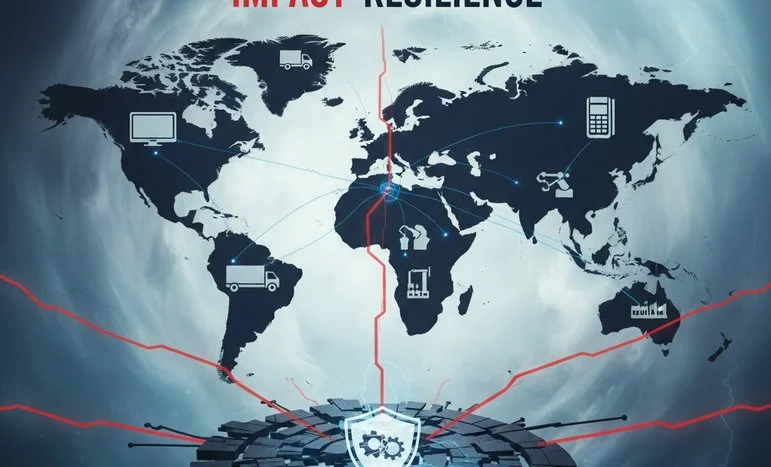
Mental Health Crises in Modern Life: Addressing Isolation and Stress
Modern life has delivered extraordinary advances in technology, medicine, communication, and economic opportunity, reshaping how people live, work, and connect. Yet alongside these gains has emerged a quieter but deeply consequential crisis: the steady deterioration of mental well-being across large segments of the global population. Rising levels of stress, anxiety, depression, and emotional exhaustion are increasingly common, cutting across age groups, professions, and societies. While mental health challenges have always existed, the pace, scale, and visibility of distress in contemporary life suggest that structural features of modern society itself are intensifying psychological strain. Left unaddressed, this mental health crisis threatens not only individual well-being but also social cohesion, economic productivity, and the long-term resilience of communities.
One of the most striking paradoxes of modern life is the coexistence of constant digital connectivity with growing social isolation. Technological tools allow people to communicate instantly across continents, yet many individuals report feeling lonelier than ever. Urbanization and increased geographic mobility have weakened traditional community structures, dispersing extended families and reducing informal social support networks that once played a crucial role in emotional resilience. In many cities, people live in close physical proximity while remaining socially disconnected, interacting briefly or anonymously rather than forming deep, sustained relationships. Remote work, while offering flexibility and convenience, has further reduced face-to-face interaction, replacing shared workplaces with solitary home offices that can blur the boundary between independence and isolation.
Loneliness is not merely an unpleasant emotional state; it is increasingly recognized as a significant public health concern. Persistent social isolation has been linked to higher rates of depression, anxiety disorders, cognitive decline, and even physical conditions such as cardiovascular disease. For older adults, the loss of partners, friends, and mobility can compound isolation, while younger generations may struggle to form meaningful connections in environments dominated by screens and transient interactions. The erosion of social bonds undermines a fundamental human need for belonging, leaving many individuals feeling unseen, unsupported, and disconnected from their communities.
Work-related stress represents another powerful driver of modern mental health challenges. Contemporary employment environments are often defined by intense competition, constant performance evaluation, and rapid technological change. The pressure to remain productive, adaptable, and continuously available has intensified, particularly in knowledge-based and service-driven economies. Job insecurity, fueled by automation, globalization, and shifting labor markets, creates chronic anxiety even among those currently employed. For many workers, the expectation of constant availability through emails, messaging platforms, and virtual meetings has erased clear boundaries between professional and personal life, making genuine rest increasingly difficult.
Chronic workplace stress takes a significant toll on both mental and physical health. Prolonged exposure to high demands without adequate recovery can lead to burnout, characterized by emotional exhaustion, cynicism, and reduced effectiveness. Over time, stress contributes to sleep disturbances, weakened immune function, and heightened risk of depression and anxiety. From a societal perspective, the cumulative impact is substantial, manifesting in reduced productivity, increased absenteeism, higher healthcare costs, and diminished quality of life. When large portions of the workforce operate under sustained psychological strain, the effects ripple outward, affecting families, organizations, and economies alike.
Social media and digital technologies have added a new and complex dimension to mental health pressures. While online platforms can foster connection, creativity, and access to information, they also expose users to constant comparison and scrutiny. Curated portrayals of success, beauty, and happiness can create unrealistic standards, leading individuals to measure their own lives against idealized images that bear little resemblance to reality. For many, especially adolescents and young adults, this cycle of comparison fuels feelings of inadequacy, low self-esteem, and anxiety. Cyberbullying and online harassment further exacerbate these risks, turning digital spaces into sources of fear and distress rather than support.
Excessive digital engagement also affects cognitive and emotional functioning. Constant notifications and information streams fragment attention, making it harder to focus, reflect, or disengage. Screen overuse disrupts sleep patterns, particularly when devices are used late into the night, contributing to fatigue and emotional dysregulation. Over time, reliance on digital validation through likes, shares, and comments can reshape self-worth, tying emotional well-being to fluctuating online feedback. Addressing mental health in modern life therefore requires not rejection of technology but a more intentional and balanced relationship with it.
The mental health crisis extends beyond individual suffering, producing significant societal consequences. Economically, mental health conditions contribute to lost productivity, increased disability claims, and rising healthcare expenditures. Educational systems are affected as students experiencing anxiety, depression, or chronic stress struggle to concentrate, perform academically, or remain engaged. In severe cases, untreated mental health conditions correlate with higher risks of self-harm, substance misuse, and social withdrawal, placing additional strain on public services and community resources. At a broader level, widespread psychological distress can erode social trust, empathy, and civic participation, weakening the social fabric that sustains stable societies.
Responding effectively to these challenges requires a comprehensive and multi-layered approach. Public policy plays a crucial role in ensuring that mental health care is accessible, affordable, and integrated into broader health systems. Universal access to mental health services reduces disparities and encourages early intervention, preventing conditions from escalating into crises. Educational institutions can incorporate mental health literacy into curricula, helping young people recognize signs of distress, develop coping strategies, and seek help without stigma. Workplaces, too, have a responsibility to adopt policies that support employee well-being, including flexible schedules, reasonable workloads, and access to counseling and wellness programs.
Communities serve as a vital foundation for mental well-being, offering connection, purpose, and mutual support. Local initiatives that encourage social interaction, volunteering, and shared activities can counteract isolation and foster a sense of belonging. Peer support networks and community-based programs provide spaces where individuals can share experiences and seek understanding without fear of judgment. Family relationships, when supported and strengthened, remain one of the most powerful protective factors against psychological distress, offering emotional security in times of uncertainty and change.
Technology, when used thoughtfully, can also contribute positively to mental health solutions. Teletherapy and online counseling platforms expand access to care, particularly for individuals in remote or underserved areas. Digital tools for mindfulness, stress management, and mood tracking can complement professional treatment, empowering individuals to take an active role in their mental well-being. At the same time, ethical use of data and careful design are essential to ensure that technological interventions support, rather than exploit, vulnerable users.
Awareness and education remain central to reducing stigma and encouraging help-seeking behavior. Public campaigns that normalize conversations about mental health can challenge misconceptions and foster compassion. Training for educators, employers, and healthcare providers improves early identification and support, creating environments where mental well-being is recognized as integral to overall health. Education around healthy technology use helps individuals set boundaries, cultivate balance, and reduce the psychological risks associated with constant connectivity.
Certain groups face heightened vulnerability in modern society and require tailored interventions. Young people navigating identity formation amid social media pressures are particularly susceptible to anxiety and depression. Healthcare workers and caregivers operate in emotionally demanding environments that increase risk of burnout and compassion fatigue. Older adults may experience compounded challenges related to isolation, chronic illness, and reduced mobility. Marginalized populations often face additional stressors stemming from economic insecurity, discrimination, and limited access to care. Addressing mental health effectively means acknowledging these disparities and designing responses that reflect diverse lived experiences.
Modern life, with all its progress and promise, has created conditions that strain mental health in complex and interrelated ways. Isolation, occupational stress, and digital pressures do not exist in isolation; they reinforce one another, shaping daily experiences and long-term outcomes. Recognizing mental health as a societal issue rather than a purely personal one is essential for meaningful progress. By investing in supportive policies, nurturing community connections, promoting responsible technology use, and fostering open dialogue, societies can begin to reverse the tide of psychological distress.
In a rapidly changing world, mental health is not a luxury or an afterthought. It is a foundational element of human well-being, social stability, and sustainable progress. Addressing mental health crises with seriousness, compassion, and foresight is not only an ethical obligation but a practical necessity for building resilient individuals and societies capable of navigating the challenges of modern life.
We appreciate that not everyone can afford to pay for Views right now. That’s why we choose to keep our journalism open for everyone. If this is you, please continue to read for free.
But if you can, can we count on your support at this perilous time? Here are three good reasons to make the choice to fund us today.
1. Our quality, investigative journalism is a scrutinising force.
2. We are independent and have no billionaire owner controlling what we do, so your money directly powers our reporting.
3. It doesn’t cost much, and takes less time than it took to read this message.
Choose to support open, independent journalism on a monthly basis. Thank you.



















